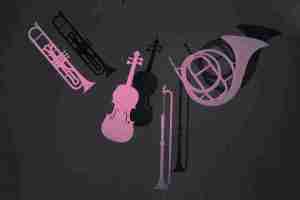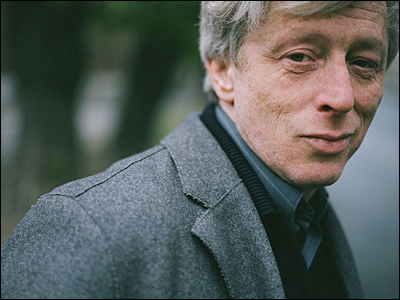Sabian HH Series Thin Chinese Cymbal 18 Inches

Sabian HH Series Thin Chinese Cymbal 18 Inches
Sabian HH Series Thin Chinese Cymbal 18 Inches

Sabian HH Series Thin Chinese Cymbal 18 Inches
Sabian HH Series Thin Chinese Cymbal 18 Inches
 Leading Industry Professionals to Discuss “Efficiency in Broadcast Technology” at The Vitec Group’s Live Event Area
Leading Industry Professionals to Discuss “Efficiency in Broadcast Technology” at The Vitec Group’s Live Event Area
LAS VEGAS,MARCH 31, 2011 – Integrated Microwave Technologies (IMT), a Business Unit within the Vitec Group’s Videocom Division, and a leader in advanced digital microwave systems serving Broadcast, Sports & Entertainment and MAG (Military, Aerospace & Government) markets, will offer several presentations featuring industry experts discussing “Efficiency in Broadcast Technology” in The Vitec Group’s Live Event Area during the 2011 NAB Show in Las Vegas. The Vitec Group Live Event Area is located at Booth C6428 in the Central Hall.
“We are happy to be given the opportunity to share expert insight on such an important and relevant topic amongst our peers and industry professionals who will be in attendance at the 2011 NAB Show,” says Stephen Shpock, president, Integrated Microwave Technologies. “IMT is committed (more…)
New Design Reduces Size yet Increases Features (more…)
 Next week we go Baroque crazy with our festival at Kings Place, an action-packed five days of concerts, talks, workshops and more. We’re playing some music from the big names of the Baroque, but the Thursday and Friday concerts also contain a few rarities. Any fans of the composer Finger here? Or William Williams?
Next week we go Baroque crazy with our festival at Kings Place, an action-packed five days of concerts, talks, workshops and more. We’re playing some music from the big names of the Baroque, but the Thursday and Friday concerts also contain a few rarities. Any fans of the composer Finger here? Or William Williams?
Well, over the next few days we’re going to be posting up some potted facts about these lesser-known composers, and we’ve also put some playlists together for you on Spotify, so you can preview some of the music. We’ll also try and find some Youtube links for those of you who aren’t using Spotify yet.
Here are the Spotify links – enjoy!
Listen to highlights from the hour-long concerts on Thursday 7 and Friday 8 April here
Listen to highlights from the 7.30pm concert on Saturday 9 April here
More evidence that the UK is living in artistically straitened times emerged yesterday from the Arts Council of England. A £100m budget cut in October has led to a reduction in the number of groups receiving funding from 849 to 695. Many of those that have been successful have also experienced large budget reductions, though the picture is not consistent since, instead of ‘uniform cuts to all’, the Arts Council has adopted a policy of ‘strategic cuts’. This means that some organisations, such as the Young Vic, have experienced large budget increases, whilst others are new to the list. So what about the purely musical picture, and what might it mean for composers?
Within the organisations that the Arts Council will continue to fund, 86 are classed as purely musical. Of these, 14 appear to be new to the list. Of the rest, 48 have experienced budget cuts, 24 budget increases. Within these figures are causes of concern and a few crumbs of comfort. Aldeburgh Music and Birmingham Contemporary Music group, for example, have received cuts of 9.3% and 11% respectively (all figures adjusted for inflation). Most worryingly, Sound and Music, the organisation that is a mainstay of support to living composers, has received a whopping cut of 48%. Crumbs include budget increases for the Psappha ensemble (up 40.8%) and Oxford Contemporary Music (up 16.5%). It is less clear from navigating the Arts Council website just which organisations have lost their funding completely. Perhaps members will have more information about this?
In another related piece of news the government has pledged an extra £80m of lottery funding for the Arts Council from 2013. Is it uncharitable to wonder whether this might have something to do with the ending of the London Olympics?
 Electrosonic is pleased to announce its acquisition of systems integrator Excel Media Systems Inc. The company will become part of Electrosonic’s corporate solutions business, offering meeting room and video conferencing systems with full after-sales services from offices in New York City.
Electrosonic is pleased to announce its acquisition of systems integrator Excel Media Systems Inc. The company will become part of Electrosonic’s corporate solutions business, offering meeting room and video conferencing systems with full after-sales services from offices in New York City.
The acquisition expands Electrosonic’s corporate solutions business in the New York tri-state area and allows the company to better serve its international clients with local offices. Electrosonic’s breadth of AV systems knowledge and project management expertise will ensure that Excel Media’s customers will continue to receive the highest level of service and support.
“We are excited to bring Excel Media’s talented team to Electrosonic,” says Jim Bowie, President of Electrosonic Group. “Together we will continue to expand and develop our systems and service offerings.” (more…)
Here’s a little video diary from our trip to Paris back in January, when we took a supersized OAE there for a concert of Wagner, Liszt and Mahler with conductor Vladimir Jurowski and mezzo soprano Sarah Connolly. We armed Communications Director William Norris with a video camera, and here are the results:

I had a conversation about opera with Leonid Desyatnikov. Desyatnikov is one of Russia’s most prominent composers and since 2009 the artistic director of the Bolshoi Theatre. His opera Rosental's Children, based on the libretto by the highly controversial fiction writer Vladimir Sorokin commissioned and staged at the Bolshoi Theatre made an enormous and scandalous success. One of the opera reviewers described: ’’Here, Mozart is a clone brought to life at Doctor Rosenthal's laboratory. With the government subsidies for cloning and stem cell exploration, as well as for other areas of basic research, cut off during Boris Yeltsin's presidency in the early 1990s, clones of Mozart and other great composers-such as Giuseppe Verdi, Richard Wagner, and Pyotr Tchaikovsky – find themselves loose on Moscow's streets, exposed to the murky post-Soviet reality, memories whereof are still fresh for many Muscovites.’’ The Russian State Duma accused the opera of being ‘pornographic’ and promted an investigation after its premier. Nevertheless, the opera received a Golden Mask Award.
Elena Langer: Can we please talk about opera?
Leonid Desyatnikov: Why opera?
EL: Because of your Rosental's Children, because you are the artistic director of an Opera House and because I have ulterior motives as I have just finished writing my own full-length opera and am very keen to discuss various aspects of the genre. Do you think you could describe what opera is in one sentence?
LD: This is too difficult! I can only offer a banal answer – a pinnacle in the history of European culture.
EL: Is opera a story told through music, singing and movement?
LD: No, it doesn’t necessarily need a story. There are many wonderful operas in which nothing really happens. Take Saint Francis of Assisi by Messiaen, or any baroque opera… If a composer uses mythology then the story lacks suspense. The development of the plot becomes unimportant as everybody knows what is going to happen.
EL: At least we now have established what is NOT important and that is the plot!
LD: Of course – look at Tristan and Isolde or Szymanowski’s King Roger…. In any fiction film many more events take place than in an opera.
EL: What is important then?
LD: Well, what is important is that it creates some fit of passion, some metaphysical, otherworldly psychological human state expressed through music. Opera shows us characters in such emotional states that are otherwise impossible to express but through music.
EL: It is the only genre where we can hear the thoughts of several characters simultaneously…
LD: Yes, true, but we can’t hear the text in 95% of cases! Instead, we see a special moment, where a few characters are shocked. At least I personally always remember those kinds of bewitched moments. ‘I’m frightened’ (‘Mne strashno’), for instance, from the first tableau of The Queen of Spades or the finale of The Marriage of Figaro. So after all, it doesn’t matter what they are saying, it matters what they all are feeling during those moments. Music is able to tell us more than the text in this situation. The characters are still, like in a child’s play ‘statue’. The depth of their feeling is interesting – the ensembles are not about what you see, but what you don’t see, about the inner side of life.
Excerpt from Desyatnikov's opera 'Rosental's Children'
EL: Could you name your 5 favourite operas?
LD: Five favourite operas for a professional composer would not be enough. Your favourite opera is the one, where you revel with each note, which you know by heart from beginning to end. There are music-lovers, who could sing each character’s lines from their favourite operas.
EL: True! My grandma could sing huge bits from Traviata and Eugene Onegin although she wasn’t a musician.
LD: Probably, you could only be so faithful to opera if you are a music lover, not a professional composer. Opera for me and should be for you, a kind of back garden, which you can’t regard with reverence. We have to cultivate this back garden because we are its owners.
EL: But I still regard Wozzeck or Lady Macbeth of Mtsens with reverence…
LD: As a matter of fact, Lady Macbeth of Mtsensk doesn’t touch me much. Actually, the same could be said about Wozzeck. Although, the culmination moment in the d-minor invention couldn’t leave anybody untouched. The problem is that I know this opera from inside out – for a few months I was living with it. (Wozzeck was recently staged at the Bolshoi Theatre – EL). So it is really hard to be emotionally shocked by something that you know so well. My perception of it is not fresh enough.
EL: I’m always amazed by the German counterpoint, the intensity and richness of it. I don’t think you could find that level of counterpoint in Russian music.
LD:
